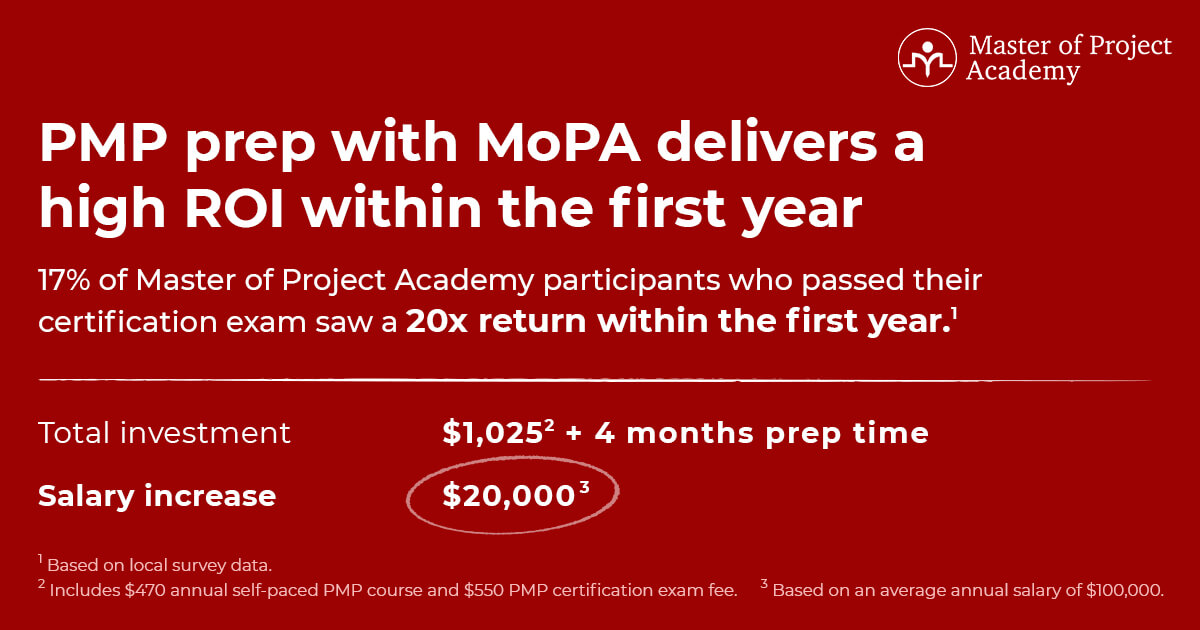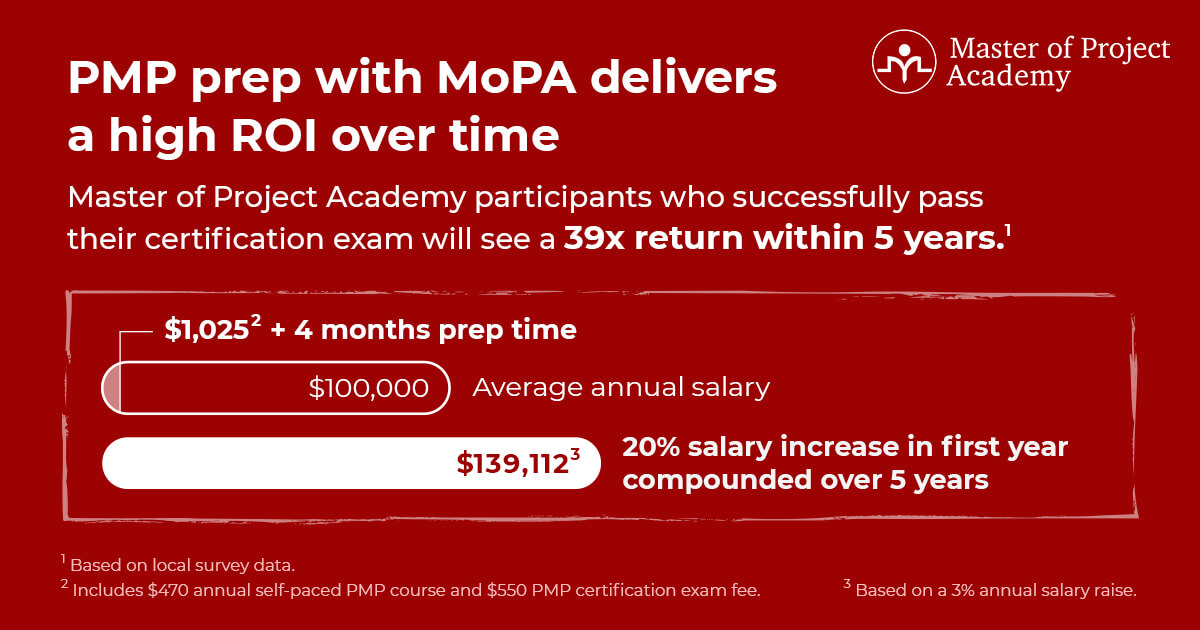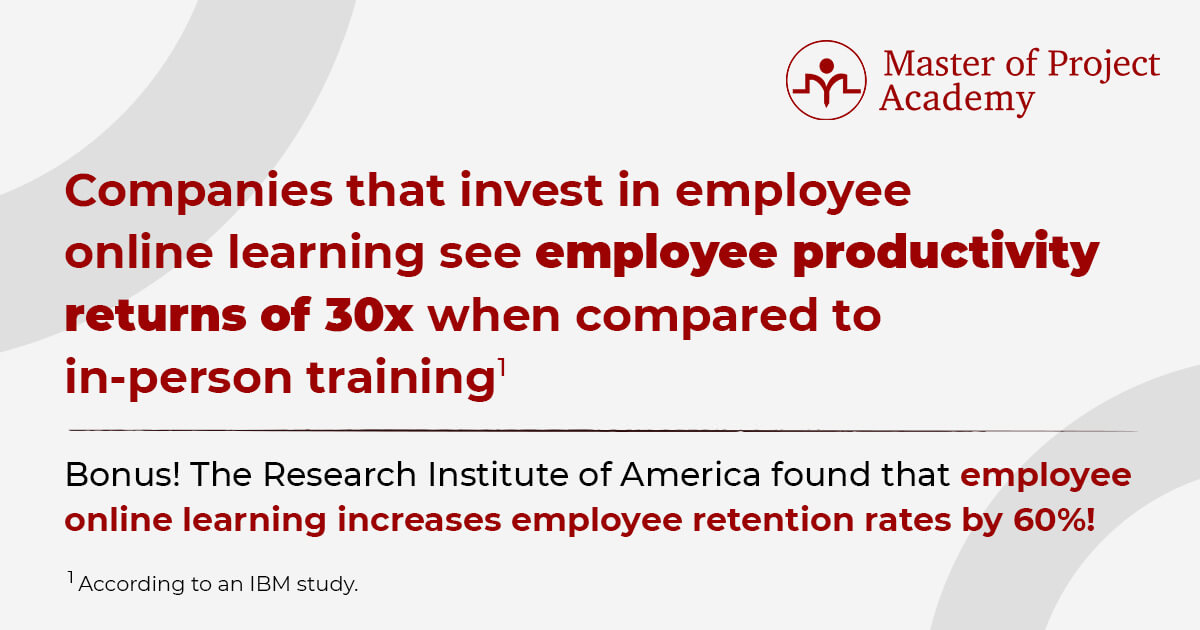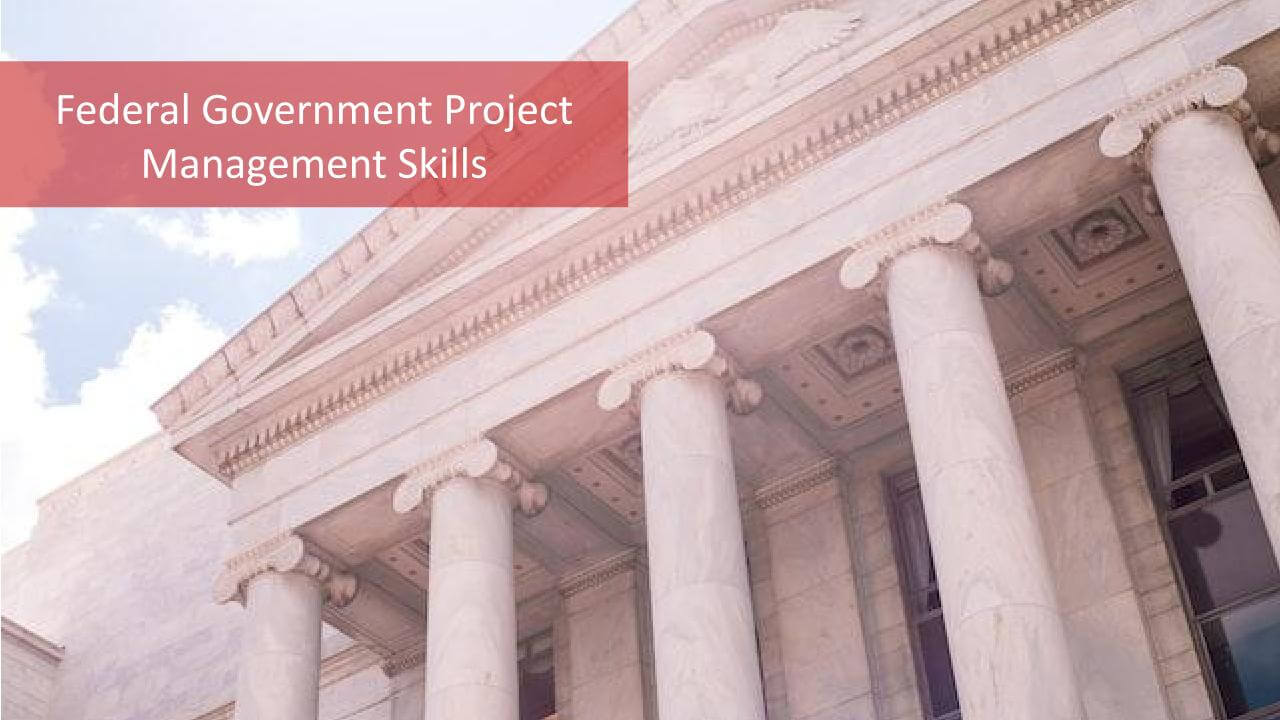Project Management skills are essential for everyone who is working in planning, executing, and tracking projects and programs. It is a general understanding that project management skills are more important in the business sector where the primary focus is on cost savings and delivering with a higher profit margin. However, government project management skills and credentials are becoming relevant for government agencies as well. Because they are mandated to incorporate the Program Management Improvement Accountability Act (PMIAA) in their work.
- You can read more to learn why project management is important today.
What is PMIAA?
The Program Management Improvement and Accountability Act (PMIAA) is a project and program management reform act. It was signed into law in late 2016. It is being implemented by the Office of Management and Budget and the Office of Personnel Management. PMIAA makes critical improvements to the foundation of federal project and program management policy. It also supports the government in better addressing the budget overruns, scope creep, schedule slippage, and workforce-capacity challenges that have plagued some government programs for many years.
The PMIAA supports reforms in the federal program management policy by creating a career path for project and program managers in the federal government.
PMIAA also aims to develop a standards-based program management policy throughout the federal government, which will reduce wasteful government spending. The Project Management Institute 2020 “Pulse of the Profession” report states that organizations, including government organizations, waste 11.4 percent of each dollar invested in projects through poor performance — that’s $114 million for every $1 billion invested. This is especially important for government-related programs and projects. People wrongly perceive that good project management isn’t as important in government because it isn’t profit-driven, unlike private industry. It is a great misconception that project management is necessary only where profitability matters. On the contrary, the government needs to be accountable for every tax dollar that’s paid.
In the efforts to properly implement the Program Management Improvement Accountability Act, government agencies need to focus on identifying the critical activities that would align the program/project management efforts and would support the execution of proper leadership.

Challenges in Government Project Management
Government employees encounter challenges when managing government projects, including poor support from government leaders, strict government regulations and policies that impede the work, and limited money for training.
Below is the list of the most critical challenges that the government faces today in terms of project management:
-
Limited Knowledge of Project Management Principles:
For years, government agencies inconsistently used standard project management principles in their work. Today, more government workers understand project management. But many senior managers still have limited knowledge that can affect how they manage their projects and programs.
-
Insufficient Institutional Support:
Because of limited knowledge, leaders of government agencies may not understand the value of project management. This means many agencies offer little financial support to properly train project managers.
-
Frequent Changes in Leadership:
Government tends to experience high turnover in agency leadership which can hinder progress on government projects.
-
Strict Policies and Regulations that Constrain the Work:
Rules often govern overall work and project management in private industry, but leaders and workers can bend many of those rules to help the project succeed. Government organizations must follow those rules, as they often carry the authority of law.
-
Less Effective Collaboration within Agencies and Departments:
Lack of inter-departmental collaboration is a great hindrance within and among government agencies.
-
Bureaucratic Environment:
Government agencies often operate in an environment where written and unwritten rules dominate all processes. This means they are often resistant to change or act quickly on problems.
-
Lack of Understanding or Use of Project Management Terminology:
Project management training allows workers to understand a common language pertaining to effective project management. Government employees can be ignorant of or resistant to that language.
-
Unwillingness to Improve Processes and Tools:
Governments often lack the drive to improve their tools and processes because they are too much ingrained in the processes that were followed for many years.
-
Minimal Funds for Training:
Government agencies might have limited funds to train their employees in project management. When they need to tighten the budgets they often cut those funds.

Steps to Improve Project Management Skills in Government – Targeted Project Management Training
Having strong project and program management skills brings improved and more efficient government operations where skilled government officials are being able to deliver on their respective missions. For that reason, to comply with the PMIAA, the U.S. government is incentivizing government employees working on managing projects and programs to attend project management training and receive a PMP (Project Management Professional) certification.
The project management training will help government and federal employees to gain access to the tools and resources that equip them to think beyond the projects they are familiar with, develop the ability to respond better to unexpected changes, make decisions with authority, and collaborate across teams.
The success in implementing project management skills in federal government organizations will depend on focusing training in the following areas:
Project Management Skills
These are skills of a successful project manager and they are critical to achieving agencies’ missions. The structures and process of project management are expanding by leaps and bounds across all levels of the federal government. A number of government agencies have recognized and begun to realize the benefits of a formal approach to building and maintaining project management competencies and skills as part of their goals to improve the quality and success rate of projects in the federal government.
Communication
Projects need to be transparent, and the stakeholders should understand the project progress and the outcomes. The government project manager should establish a communications plan that outlines how the information will be disseminated and received, how the communication will be archived, and what are the compliance constraints with federal reporting requirements.
Leadership
Successful projects require special attention from project managers for team building, motivation, and management, as well as relationships with stakeholders. Effective leadership entails gaining the support and commitment of the project team members and applying techniques that address team-building needs, conflict resolution, and motivation. There are specific aspects of leadership that can be learned and applied to effective project management. The leadership for today’s organizations involves inclusion, greater personal responsibility, a greater sense of belonging, team collaboration, coaching and mentoring, and listening to others’ ideas and contributions.

Team management
The key aspect of managing project teams is establishing and communicating clear roles and responsibilities. Providing clear definitions of team members’ roles and responsibilities, even generic definitions, provide a framework for the project manager to set expectations for effectively managing the team and successfully fostering teamwork and team building.
Project/Program Performance Measurement
The governments are emphasizing the importance of measuring projects more consistently. For example, the Office of Management and Budget (OMB) requires an earned value management system (EVMS) for all large projects. This is particularly important because projects use public funds and require adequate reporting and oversight. Other reasons for performance measurement are to determine whether a project has been able to meet its objectives, help project managers to replicate what went well, correct what did not go well or check funding, and establish, if appropriate, new priorities.
The PMP and CAPM examination prep training courses that Master of Project Academy provides, comprehensively discuss and explain all the above areas. Master of Project Academy is one of the best training providers that have helped thousands of professionals to improve their skills and become more efficient Project Managers.
- What is PMP or Project Management Professional Certification?
- What is CAPM or Certified Associate in Project Management Certification?
How Can Master of Project Academy’s PMP and CAPM Courses Help?
Master of Project Academy offers PMP and CAPM virtual courses that are instructor-led live training courses, so you can study around YOUR schedule. The live online PMP and CAPM training courses will provide you with the right knowledge to improve your project management skills and successfully pass the PMP or CAPM exam.


Check out our CAPM and PMP training courses:
- PMP® Online Class Virtual Training
- Self-paced PMP® Certification Training.
- CAPM® Online Class Virtual Training
- Self-paced CAPM® Certification Training
The Benefits Of Our PMP and CAPM Courses:
When you enroll in our virtual or self-paced project management courses, you will:
- Earn 35 (26) hours of PMP (CAPM) education to help you become eligible for the PMP or CAPM certification exam.
- Learn from expert PMP instructors with extensive practical experience in project management and teaching who will explain the concepts of project management through real-life examples and case studies.
- Receive a thorough explanation of any project management questions and concepts that might arise during the virtual training.
- Follow the virtual PMP (CAPM) course from anywhere if you have a stable internet connection using our web-based platform.
- Get full support from our instructors during and after the training course as well as 24/7 assistance from our expert support team.
- Have access to the online moderated PMP peer forum to participate in active discussions during and after your PMP prep.
- Receive over 750 practice questions to test your skills and a full sample PMP exam to assess your readiness for the real exam.
- Download high-quality PMP (CAPM) study material such as flashcards, cheat sheets, etc., that will support you in your study.
- Receive step-by-step guidance on how to apply for the PMP exam from your PMP instructor.
- Additionally, as Master of Project Academy, we are SAM.gov registered.
You can find more information on how to get PMP certified.
If you are wondering whether you are eligible for PMP or not read the PMP requirements.
Benefits of Government Project Management
Project management helps various federal, municipal, and state agencies fulfill project goals within the deadline and on budget. The right tools help government entities manage projects efficiently and stay accountable to stakeholders, both elected officials, and taxpayers.
Applying the standards and principles of project management puts in place structures that enable teams to do work consistently across all projects and throughout the organization. Following best practices help avoid the reinvention of project tools and techniques for each project that is being executed. It allows agencies to better adapt to new technologies because they become part of structured project management.
Furthermore, it provides Project Managers and teams with access to past data, past work, and best practices in project management, which helps ensure more consistent and better project execution.
A solid project management structure helps in monitoring whether project deliverables are completed and if that was done on time and within budget.
It helps the project team members understand their responsibilities in completing the work and provides guidance on how to report on progress to government agencies and senior officials.
Good project management practices provide project teams with guidance on how to communicate with a range of stakeholders, both inside and outside the government agency that is doing the work. Those stakeholders that are affected by the project can be the community, citizens, elected officials, and other taxpayers that are benefiting from the projects or programs.
Finally, good project management increases the team’s efficiency in responding in a structured and organized way to disasters, such as natural disasters and pandemic situations.
- Check out 7 Signs of Poor Project Management
- Read more about 5 Consequences of Poor Project Management
Good Project Management Brings Positive Change in Government
Good project management delivers successful projects and brings satisfied customers/stakeholders. The application of project management standards and principles can change how government and federal agencies work. can increase flexibility in execution and can promote a culture of innovation within government agencies.
Let’s discuss briefly how good Project Management can bring a positive change to the government and federal agencies:
- Project Management Increases Flexibility: Government agencies often operate within bureaucratic, inflexible environments. But good project management provides agency officials and team members with tools and techniques to make needed adjustments in how they plan and execute work.
- Project Management Fosters Innovation: Government agencies need to focus their efforts on how to better serve the public. Project management can give that needed innovation in finding the best ways to provide successful projects to the community. There are many initiatives within the federal government agencies where the employees are rewarded if they present their creative ways and ideas on improving work efficiencies and saving money.
- Project Management Can Be a Driver of Change: Many government agencies are change-averse. Good project management inherently brings about positive change. Team members should recognize their potential role as change agents.

Conclusion
Project management practices should be integrated into all government programs and projects around the globe. They help federal, municipal, and state agencies complete their projects on deadline and on budget. The proper methods and tools help government departments manage projects efficiently and stay accountable to stakeholders. Accountability is important to maintain the people’s confidence in the government’s transparency, efficiency, and capability to manage programs and projects that benefit the citizens.
Master of Project Academy, which is already SAM.gov registered, offers two Project Management Certification training courses. The courses will provide government project managers with the specialized knowledge needed to lead federal projects successfully. Certified Associate in Project Management (CAPM) training provides a foundational understanding of the principles and standards of project management. Project Management Professional (PMP) training provides more in-depth knowledge and practical application of the best practices and principles needed to manage and deliver projects as per stakeholders’ expectations. Both are globally recognized certifications for excellence in project management.
